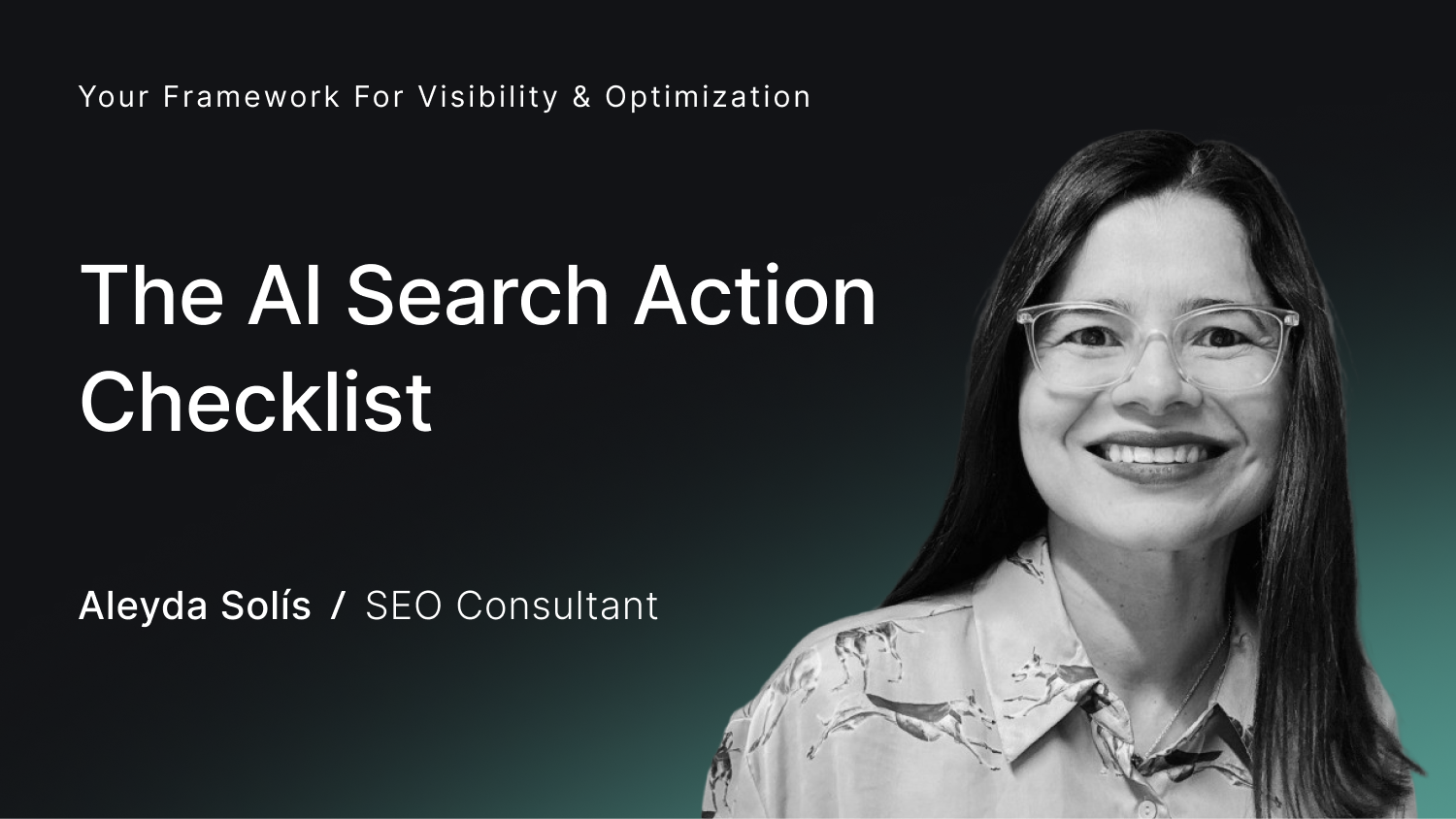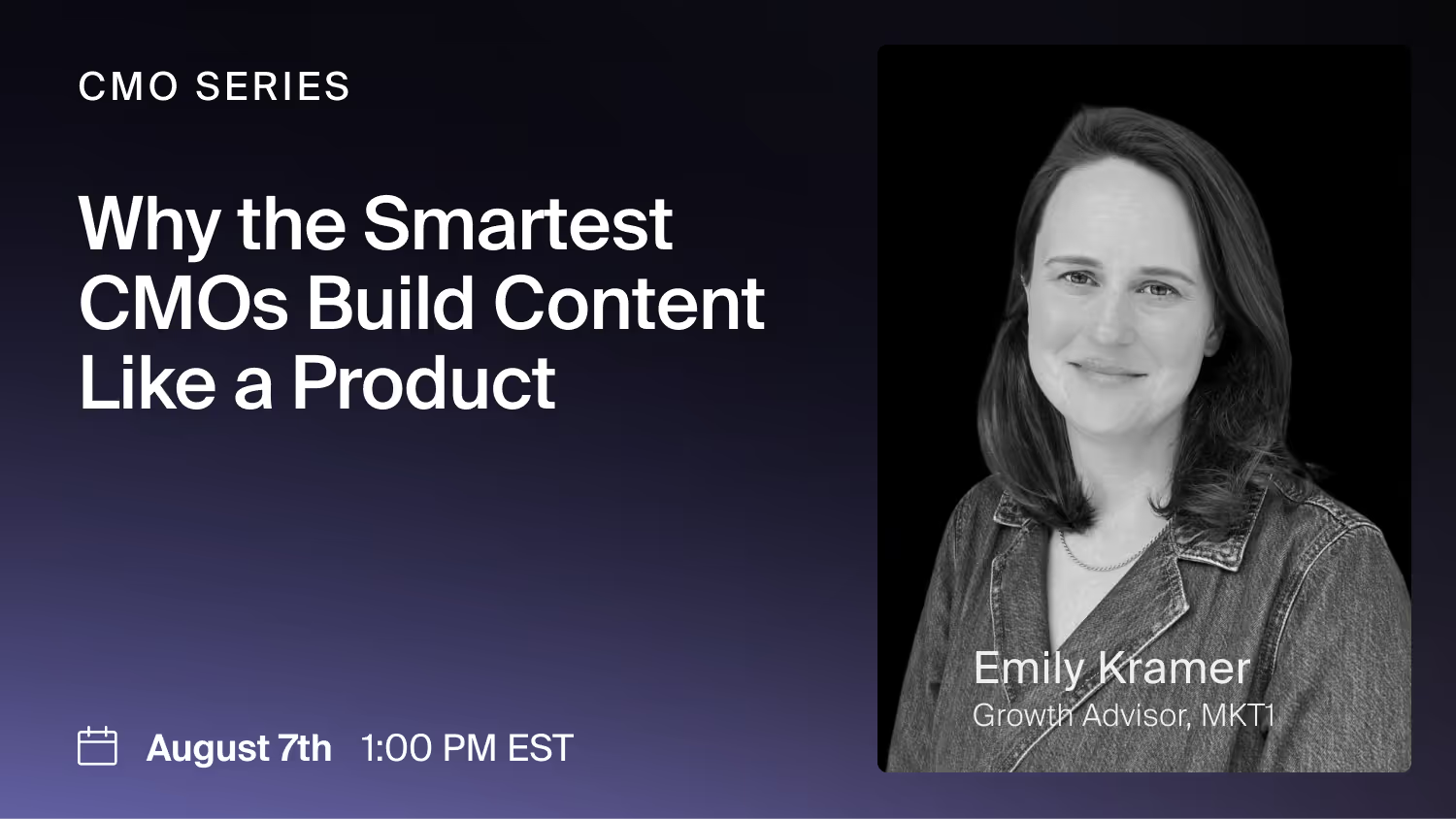Webinar Recap: The AI Search Action Checklist with Aleyda Solis

The rules of SEO are changing as AI search transforms how users discover information online. In a recent AirOps Growth Leader Series webinar, international SEO consultant Aleyda Solis joined Josh Spilker (Content/SEO, AirOps) to unpack the new realities of AI-driven search.
Aleyda shared the fundamental differences between traditional and AI search engines, shared a comprehensive optimization framework, and provided actionable strategies for how to tackle the changes in search.
Top 5 Takeaways
- AI Search Requires a Different Optimization Mindset
AI search platforms process queries, evaluate content, and weigh authority signals differently from traditional search engines, requiring a fresh approach to optimization. - Understand and Track AI Search Audience Behavior
Audience search patterns and traffic sources on AI platforms can diverge significantly from traditional search, making it critical to analyze and adapt to these new behaviors. - Technical SEO Fundamentals Are Critical for AI Crawlability
Ensuring your website is crawlable and indexable by AI bots—especially by minimizing reliance on client-side JavaScript—is essential for maintaining visibility. - Comprehensive Topic Clusters and Chunked Content Boost AI Visibility
Structuring content into well-organized topic clusters and semantically tight, self-contained chunks increases the likelihood of being cited in AI-generated answers. - Authority, Citations, and Community Mentions Matter More Than Ever
Being referenced, cited, and mentioned by trusted third-party sources and communities now plays a pivotal role in AI search rankings.
Get Aleyda's 10-step AI search optimization checklist.
Aleyda shared practical frameworks and strategic insights that SEO and content teams can implement right now. The following sections break down the most valuable insights from the webinar, with a focus on actionable strategies that drive results for AI search. She introduced a 10-step AI search optimization checklist for optimizing content for AI search, covering everything from audience research and technical SEO to topic clusters, content chunking, and citation strategies.
Key Differences Between Traditional and AI Search
AI search changes the game across query types, optimization targets, authority signals, and results presentation. While some SEO fundamentals remain, AI search introduces new behaviors and expectations that marketers must address.
- AI search queries are longer, conversational, and more task-focused than traditional keyword-based searches.
- AI search generates sub-queries to build comprehensive answers, unlike the one-to-one keyword matching of traditional search.
- Optimization must now prioritize content chunks or passages, not just page-level content.
- Authority signals are shifting from backlinks to mentions, citations, and entity-based trust
Take a New Optimization Mindset for AI Search
- Shift your focus from traditional keyword targeting to optimizing for conversational, task-oriented queries and chunk-level content relevance.
- Understand that AI search rewards semantically rich, self-contained content over generic, page-level optimization.
"With AI search this happens at a passage or chunk level of relevance." — Aleyda Solis
Prioritize Technical SEO for AI Crawlability
- Audit your site to ensure AI bots can crawl and index all key content, minimizing reliance on client-side JavaScript.
- Update technical configurations to accommodate AI platforms, which may have different crawling behaviors than traditional search engines.
- Regularly review server logs and analytics to confirm AI bots are accessing your content.
Build Comprehensive Topic Clusters and Chunked Content
- Develop topic clusters that cover every angle and subtopic relevant to your brand, ensuring each page or section is tightly focused.
- Structure content so each section is independently valuable, making it easier for AI to retrieve and cite.
"It is even more important than ever to have comprehensive coverage, ideally through topic clusters for each one of the relevant topics that our brands are about." — Aleyda Solis
Increase Authority Through Citations and Community Engagement
- Invest in digital PR and community initiatives to generate third-party mentions and citations.
- Create original research, industry insights, and expert-driven resources that are highly citable.
Measure What Matters and Communicate Impact
- Move beyond traffic as the sole metric; track share of voice, mentions, and brand sentiment in AI search results.
- Benchmark against competitors and set realistic goals for leadership, focusing on long-term visibility and authority.
"The metrics that we use and the goals that we pursue might be different because not all of a high share of the outcome of the engagement of the users are, might not necessarily end up in direct traffic as it did with additional search." — Aleyda Solis
Advancing Your AI Search Optimization Strategy
Applying these insights means rethinking both your content and your measurement frameworks. Start by auditing your current visibility in AI search platforms, then update your technical SEO and content structure to support chunk-level retrieval and comprehensive topic coverage.
Once you've addressed crawlability and content depth, focus on building your brand's authority through strategic outreach, original resources, and community involvement. Regularly monitor your AI search performance, adjusting your approach as both the platforms and your audience evolve.
Final Thoughts
AirOps is the only all-in-one platform that shows how you stack up in AI search, tells you exactly what to do, and helps you take action at scale with quality and speed. We'd love to help you win AI search before your competitors.
Email us at growth@airops.com to secure your spot in our early access program.
Win AI Search.
Increase brand visibility across AI search and Google with the only platform taking you from insights to action.
Get the latest on AI content & marketing
Get the latest in growth and AI workflows delivered to your inbox each week

.avif)


.avif)
.avif)
